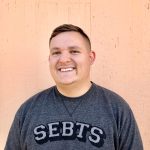There is certainly no denying that evangelicals often debate the proper understanding of the imago dei and broader issues concerning the nature of human personhood. My own thinking on the subject is still evolving and Imes and I would likely diverge on the particulars. However, at a minimum, I am inclined to hold with Imes that:
- All human persons, regardless of physical capacities, gender, race, religious affiliation, and other such differences have intrinsic value.
- Human beings bear a unique responsibility to help steward and care for all of creation.
As Imes so graciously noted, however, there has been a colossal disconnect between evangelical belief and practice. Evangelical Christians have often failed to lead the charge in causes which promote human flourishing and faithfully steward creation, causes to which Christians should be radically dedicated. Simply stated, we have often failed to live in a manner consistent with our understanding of human personhood. God, forgive us.
We defend the lives of the unborn, but are much less likely to champion measures that would alleviate human suffering throughout the lifespan. We proudly accept the title, “protector and steward of creation,” while often failing to work towards sustainable environmental protections. Admittedly, these are complex issues. However, there is little doubt that evangelicals could be doing more to work towards God-honoring solutions.
In reflecting on Imes’s lecture, I am struck by the unfortunate relevance of her comments. The current evangelical climate betrays a number of ways in which the gap between belief and practice is growing ever wider. Yes, it is certainly difficult to overstate the importance of correct doctrine, a proper understanding of the truths conveyed in scripture. But at what point do we begin to question whether the truths we claim to believe have taken root in our hearts? How foundational is a belief that has little to no effect on the way we live our lives? These are the sorts of questions we need to be asking.
I am so thankful to Dr. Carmen Imes for addressing issues which have gone largely neglected in evangelical spaces. I am thankful that her work has offered me an occasion to ponder the degree to which my own life and practice bears testimony to my belief, on the nature of human persons and much more besides. I pray that her words would not go unheeded. We have a long way to go, this much is certain. However, alongside Dr. Imes, I remain hopeful that by God’s grace we can do better. Brothers and Sisters, I pray that we would manifest consistency, a unity of belief and practice, to a watching world.
This article is a reflection on our recent conference, Exploring Personhood. In coming weeks, we’ll make the video recordings available. When you sign up for our newsletter (below), you’ll be notified when they’re live!




No comments have been added.